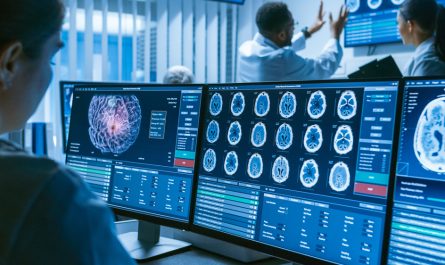
Antibody Specificity and Selection
When performing scientific experiments, researchers require tools that are highly selective in detecting target molecules. Antibodies have become crucial in research due to their unique ability to bind specifically to proteins, molecular complexes and other antigens. The specificity of an antibody is determined by its antigen binding site, which is made up of amino acid sequences that have tightly folded to complement the shape and chemical characteristics of the antigen. Researchers must carefully select antibodies prior to experiments based on their published specificities and validations. Commonly used types of antibodies include monoclonal, polyclonal and recombinant antibodies.
Monoclonal Antibody Technologies
The most widely used antibodies in research are monoclonal antibodies, which are generated by immortalizing a single clone of B cells that secrete antibodies specific for one antigenic site. Since monoclonal antibodies are derived from a single cell line, they have higher specificity and consistency between different batches compared to polyclonal antibodies. Advances in monoclonal antibody technologies have enabled the generation of hundreds of thousands of highly specific research tools targeting a vast array of antigens. Current techniques involve immunizing mice or rats with purified antigens, fusing the antibody-producing B cells with immortal myeloma cell lines to form hybridomas, and screening for clones that secrete the desired antibody.
Polyclonal Antibody Applications
While monoclonal antibodies offer high specificity, some researchers prefer polyclonal antibodies as they can recognize multiple epitopes on an antigen. Polyclonal antibodies are produced by immunizing animals like rabbits, goats or sheep with the antigen of interest. This elicits an immune response where B cells secrete antibodies against multiple sites on the immunizing antigen. Thus polyclonal antibodies provide broader coverage of target proteins compared to monoclonal antibodies. Common applications of polyclonal antibodies include immunoprecipitation, western blotting and immunohistochemistry where recognition of multiple epitopes is advantageous.
Recombinant Antibody Platforms
More recently, technologies have emerged for generating recombinant antibodies without the need for animal immunization. Phage display and yeast display are in vitro methods that allow screening of large antibody libraries to select antibodies against predefined antigens of interest. In phage display, antibody genes are displayed on the surface of filamentous phagemid particles, allowing binding antibodies to be enriched through multiple rounds of selection against immobilized antigens. Yeast display involves expressing antibody fragments as fusions to the yeast cell surface protein Aga2p, enabling fluorescent-activated cell sorting to select yeast cells displaying antibodies that bind the target antigen. Recombinant antibodies offer advantages like humanization and customized affinity maturation, expanding the antibody toolbox available to researchers.
Antibody Validation is Critical
Regardless of the antibody generation technology utilized, it is critical that researchers thoroughly validate antibodies before relying on them for scientific findings. Validation methods include testing the antibody for specificity using techniques like western blotting against cell and tissue lysates, immunohistochemistry on relevant tissues and cell lines, immunoprecipitation followed by mass spectrometry to identify co-precipitating proteins. The species, clone and lot of antibodies used must also be reported to enable reproducibility. Researchers should look for well validated commercial or non-commercial antibody resources and avoid reliance on unverified antibodies, which could compromise experiment results and conclusions drawn from them.
Research Applications of Antibodies
The ability to generate highly selective antibodies against a myriad of molecular targets has enabled groundbreaking discoveries across various fields of research. In cell biology and biochemistry, antibodies are indispensable tools for detecting, isolating and studying proteins of interest using techniques like western blotting, immunoprecipitation, immunohistochemistry, flow cytometry and ELISA. They have propelled our understanding of cellular pathways, complexes and localization. In biomedical research, antibodies facilitate the exploration of disease mechanisms and identification of diagnostic markers and drug targets. Genomic and proteomic studies rely heavily on antibodies for target validation. Therapeutic antibody development has also revolutionized disease treatment. Overall, the generation of specific research antibodies has empowered scientific inquiry, accelerating progress across disciplines.
Future Outlook for Antibody Technologies
With continuous advancements, antibody technologies will keep enabling new scientific possibilities. Areas of active research include novel recombinant antibody selection platforms inspired by natural immunity, development of antibody libraries targeting entire proteomes, engineering of reagents like antibody fragments, bispecifics and conjugates with tailored properties, humanization of animal-derived antibodies and scale-up of hybridoma and display technologies. Multiclonality assessment, standardization and computational tools will strengthen antibody validation efforts. Integration of antibodies into emerging techniques like single-cell analysis, spatial genomics and synthetic biology will expand their functionality. These ongoing improvements aim to provide researchers with more versatile, reproducible and human-compatible antibody tools to propel scientific discoveries.
In summary, research antibodies have emerged as indispensable research reagents due to their high selectivity for target proteins and molecules. Advances in monoclonal antibodies, polyclonal antibodies, recombinant platforms and validation approaches have empowered researchers across diverse disciplines with specific antibody tools. Future developments will further enhance the capabilities, functionality and humanization of antibodies, amplifying their impact on advancing scientific experimentation and knowledge.
*Note:
- Source: Coherent Market Insights, Public sources, Desk research
- We have leveraged AI tools to mine information and compile it


